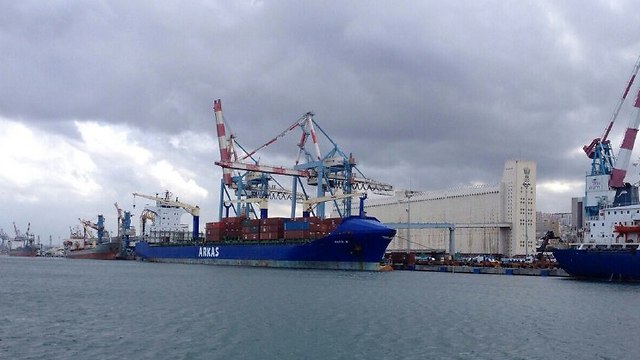
Former Finance Minister Yair Lapid
Photo: Gil Yohanan
Israel faces its first nationwide strike in nearly three years next week in a dispute over the minimum wage, an action that would put the economy at renewed risk after it took a big hit from a summer war in Gaza.
Officials from the finance ministry and Histadrut – the umbrella organization for 700,000 public sector workers – have been meeting to avert a strike scheduled to begin on December 7.
If it goes ahead it is likely to shut down the airport, seaports, trains, the stock exchange and dozens of government services, at a cost of up to $500 million a day.
The Histadrut is demanding the minimum wage be increased to 5,300 shekels ($1,355) a month from 4,300. The finance ministry has said it is prepared to raise it, but indications are it will not go beyond 5,000 shekels.
However, Prime Minister Benjamin Netanyahu fired Finance Minister Lapid on Monday evening, complicating negotiations with the massive union.
A spokesman for Histadrut, which has plastered the country with billboards, said some progress had been made in talks but that the walkout would go ahead. Negotiations are being held as a split in the ruling coalition ushers Israel towards new elections.
The last strike, a three-day stoppage in early 2012, cost the economy some 6 billion shekels ($1.5 billion) and ended with a new wage package for low-earning contract workers.
Israel's economy contracted an annualized 0.4 percent in the third quarter following the 50-day war between Israel and Hamas militants in Gaza. It is forecast to grow 2.2 percent this year, sharply down from 3.2 percent in 2013.
A strike "certainly can knock something off of growth, especially if it drags on," said Barclays economist Daniel Hewitt, although he said a two-day stoppage would not derail the economy.
While Israeli media have reported that the finance ministry is willing to raise the minimum wage to 5,000 shekels a month, a ministry spokeswoman said nothing was final.
She said the ministry was willing to give raises to those truly making the minimum wage but that only a small percentage of civil servants actually earn the minimum.
According to the Organization for Economic Co-Operation and Development, Israel's real minimum wage was the 12th highest among 25 countries in 2013.
In dollar terms, it was $14,291 a year in 2013, just behind the United States' $15,080. Israel's cost of living is high, however, and has lead to widespread protests in recent years.
















